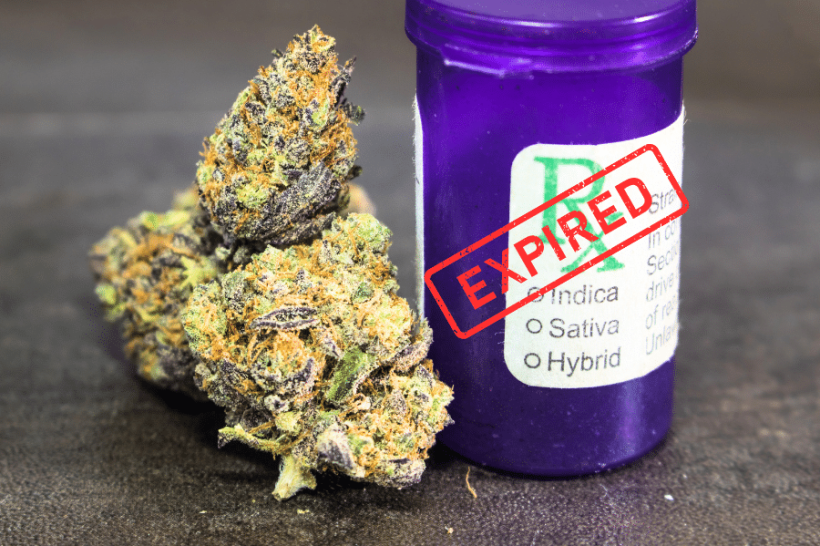How to Get a Medical Marijuana Card Near Me: A Comprehensive Guide
How to Get a Medical Marijuana Card Near Me: A Comprehensive Guide
Blog Article
The Recovery Power of Medical Cannabis: a Deep Dive Into Its Possible to Deal With Different Disorders
In recent years, the conversation around the restorative possibility of medical marijuana has gotten considerable grip within the clinical area. The advancing landscape of clinical marijuana presents a complicated tapestry of prospective benefits that require a closer assessment, dropping light on a world of treatment possibilities that continue to intrigue experts and clients alike.
Restorative Benefits of Clinical Marijuana
In the world of modern-day medication, the restorative advantages of clinical marijuana have actually arised as an appealing opportunity for dealing with various health problems. The energetic substances in cannabis, known as cannabinoids, engage with the body's endocannabinoid system to create a variety of effects that can be useful for clients. Among one of the most widely known cannabinoids is cannabidiol (CBD), which has acquired attention for its potential anti-inflammatory, analgesic, and anxiolytic residential or commercial properties without the psychedelic results frequently connected with tetrahydrocannabinol (THC)
Medical cannabis has actually revealed particular promise in relieving persistent pain, spasticity associated with numerous sclerosis, queasiness and vomiting in radiation treatment patients, and signs and symptoms of specific neurological disorders like epilepsy. Study is likewise exploring its potential in taking care of mental wellness conditions such as anxiety, anxiety, and trauma. Furthermore, clinical cannabis is being explored for its anti-inflammatory homes, which could have implications for problems like arthritis and inflammatory digestive tract condition.
Minimizing Chronic Pain With Cannabis
Having shown efficacy in attending to a spectrum of health and wellness conditions, clinical marijuana notably radiates in its ability to offer relief for individuals facing chronic pain. Persistent discomfort, defined by its persistence and incapacitating nature, influences millions worldwide, typically significantly influencing lifestyle. Conventional discomfort monitoring approaches, such as opioids, may include adverse adverse effects and the danger of dependency, driving lots of clients to look for alternative services.
Clinical cannabis has actually emerged as a promising alternative for persistent discomfort monitoring due to its analgesic homes. Research studies have actually shown that clinical cannabis can efficiently reduce persistent discomfort connected with problems like arthritis, fibromyalgia, multiple sclerosis, and neuropathy.

Taking Care Of Anxiety and Stress
Clinical marijuana offers a feasible alternative for people looking for relief from anxiety and tension due to its prospective relaxing results on the body and mind. By possibly influencing the launch of natural chemicals and regulating tension action, clinical marijuana shows guarantee in supplying an all-natural alternative for managing these problems.
Furthermore, unlike traditional anti-anxiety medications that might include undesirable side impacts or danger of reliance, medical cannabis offers a potentially safer alternative for people seeking to alleviate anxiety and tension. It is critical for individuals taking into consideration clinical marijuana for these purposes to seek advice from with a health care company experienced about clinical marijuana to guarantee safe and reliable use.
Marijuana for Neurological Problems
Research study has actually shown encouraging potential in making use of marijuana for handling neurological problems. Neurological disorders include an array of problems affecting the brain, spine, and nerves, such as epilepsy, several sclerosis, Parkinson's condition, and Alzheimer's disease. Cannabis, with its active compounds like THC and CBD, has shown neuroprotective, anti-inflammatory, and antioxidant residential properties that can benefit individuals with these conditions.

While even more professional tests are required to fully comprehend the effectiveness and security of cannabis for neurological disorders, initial searchings for are encouraging and warrant more investigation into the restorative capacity of this plant for improving the lives of those affected by such problems. - Medical Marijuana Doctor Clinton MS
Possible of Marijuana in Cancer Treatment
The increasing perspective of clinical marijuana applications expands to the capacity of leveraging its residential or commercial properties in cancer cells therapy, providing a brand-new method of expedition in utilizing the therapeutic advantages of this plant for attending to complex wellness difficulties. Cannabis reveals guarantee in cancer cells therapy his explanation due to its possible to minimize signs related to the illness and its treatment, such as discomfort, nausea or vomiting, and anorexia nervosa. Furthermore, cannabinoids, the active compounds in cannabis, have actually demonstrated anti-tumor impacts in preclinical research studies, revealing their capacity in hindering the growth of cancer cells.
Furthermore, marijuana may assist in managing the side results of conventional cancer cells treatments like chemotherapy, potentially boosting clients' top quality of life during treatment. While even more research study is required to totally comprehend the devices behind cannabis's prospective anti-cancer homes and its efficacy in various kinds of cancers, the preliminary searchings for recommend that medical cannabis might play a beneficial role in the future of cancer treatment. As the exploration of marijuana in oncology continues, it holds promise as a complementary technique to typical cancer therapies, offering individuals a well-tolerated and possibly effective option in their treatment programs.
Verdict
To conclude, medical cannabis has revealed appealing possibility in dealing with a range of conditions, consisting of persistent pain, stress and anxiety, stress and anxiety, neurological problems, and cancer cells. Its healing additional resources advantages have been progressively recognized by the clinical area, with recurring research highlighting its effectiveness in managing these conditions. As even more researches are performed, clinical cannabis may become a valuable treatment alternative for people struggling with these debilitating disorders.
In current years, the discussion around the restorative capacity of medical cannabis has actually gotten substantial traction within the clinical area. The advancing landscape of clinical marijuana offers a complicated tapestry of prospective benefits that necessitate a closer assessment, dropping light on a realm of treatment opportunities that proceed to intrigue professionals and individuals alike.

Report this page